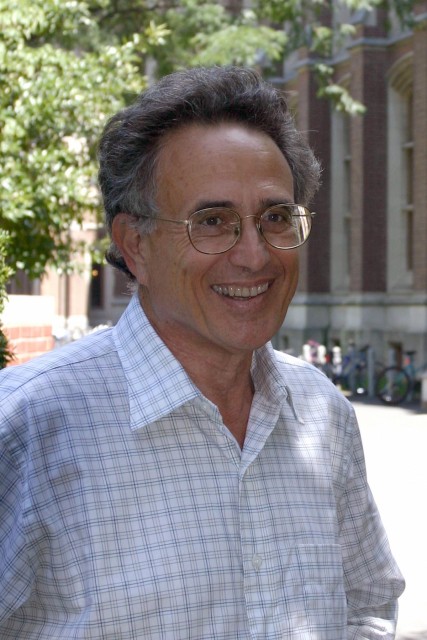Robert Socolow, co-director of the Carbon Mitigation Initiative at Princeton University's Princeton Environmental Institute, will address strategies for the stabilization and management of global carbon budgets in a Director's Colloquium talk Thursday at the Laboratory.
The unclassified talk begins at 1:10 p.m. in the Physics Building Auditorium at Technical Area 3 and is open to the work force.
Socolow's colloquium, entitled "Stabilization Wedges and the Management of Global Carbon for the Next 50 Years," will discuss quantitative estimates of various strategies, or wedges, for energy efficiency, decarbonized electricity and decarbonized fuels.
Working with fellow Princeton scientist Steve Pacala, Socolow introduced in 2004 the concept of stabilization wedges to denote the reduction of carbon dioxide emissions by 1 billion tons of carbon per year in 2055. Each wedge strategy uses existing commercialized technologies, but generally employed at much larger scales than today. According to Socolow, implementing seven wedges should enable the world to achieve the interim goal of emitting no more carbon dioxide globally in 2055 than it does today.
The wedges framework is designed to contribute new elements to global carbon policy that accelerate the commercialization of low-carbon technologies. Building on the already accepted concept of differentiated responsibilities across countries, industrialized and developing countries may agree to a coordinated set of assignments, more ambitious and more promising than those now being considered.
Socolow is a professor of mechanical and aerospace engineering at Princeton University. He was director of Princeton's Center for Energy and Environmental Studies from 1979 to 1997. He currently teaches in both the School of Engineering and Applied Science and the Woodrow Wilson School of Public and International Affairs.
Socolow received his bachelor's degree in physics from Harvard University in 1959 and his doctorate in theoretical high energy physics from Harvard in 1964. In July 1997, Socolow co-chaired a Department of Energy-sponsored workshop on Fuels Decarbonization and Carbon Sequestration.
Princeton University's Carbon Mitigation Initiative (CMI) is a $20-million, 10-year project, supported by BP and Ford. Under CMI, Princeton has launched new, coordinated research in environmental science, energy technology, geological engineering and public policy.
The talk also will be broadcast on LABNET Channel 9 and on desktop computers using Real Media Stream and IPTV technology.

